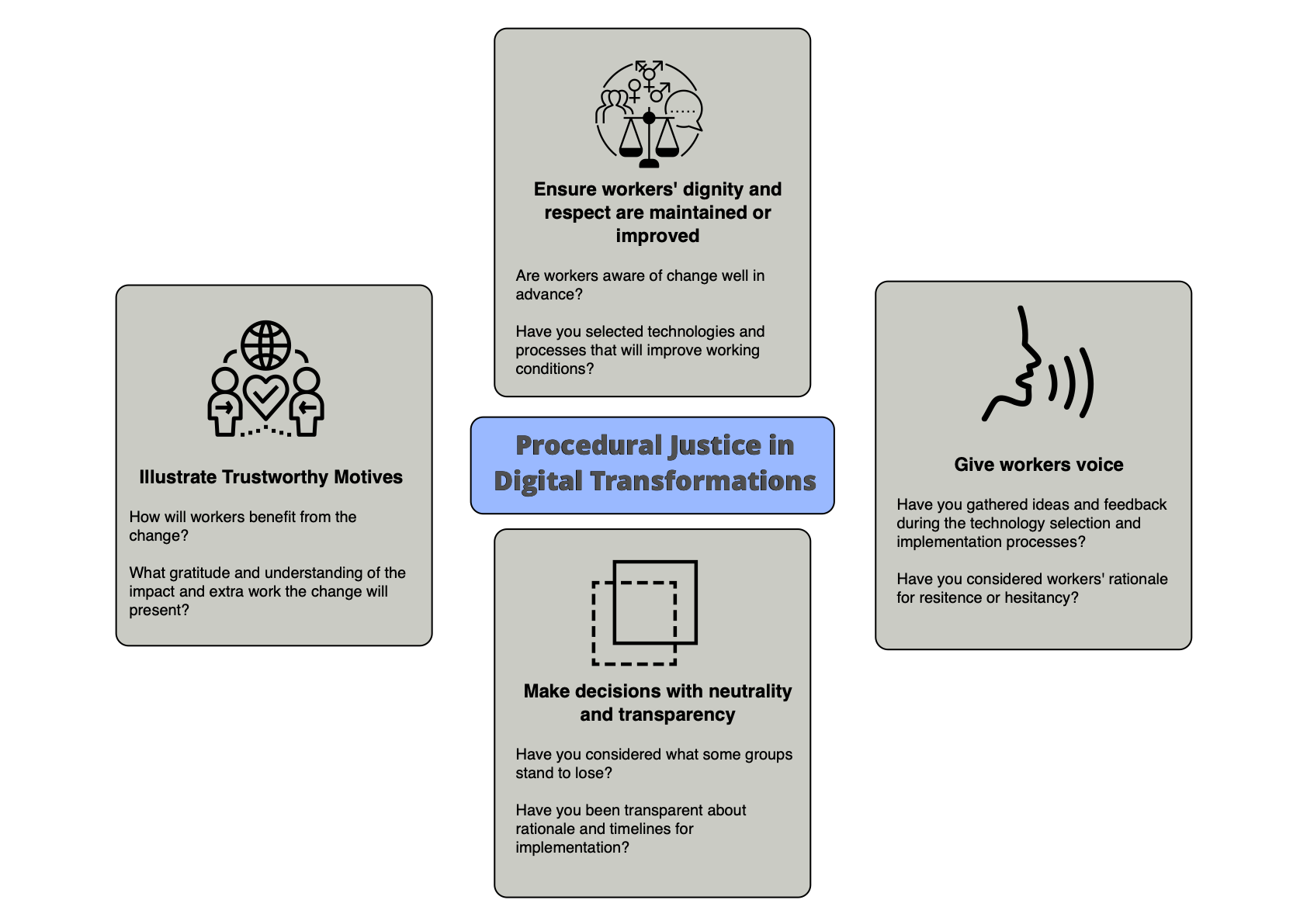Learning from the Front Line (1/3)

Why you should look to, and reward, your front line employees when adopting new technology - Part 1
This is part 1 of a 3-part series of blog posts.
What can you learn from the workers standing on the loading dock, or sitting in the factory lunch room, or chatting in the customer support cubicle farm? Answering this question is hard for some of us because organizational change often starts at the top of the organizational hierarchy, including technological change: C-suite executives and innovation officers recognize the potential value of new technology as they read industry trade publications, observe peer companies, attend trade shows, or engage with practitioner social media communities.
Automation technologies, for example, have swept through entire industries ranging from warehousing to software engineering. Today, the growth of available compute, GPU (graphics processing units) processing and developer brainpower extend and improve the capabilities of artificial intelligence-enabled automation. Organizational decision-makers, whether falling victim to hype or genuinely trying to improve operations, soon realize that implementing the latest-and-greatest tech often goes the way of every other organizational change: Productivity gains take longer than expected to achieve (e.g., following a J-curve ); workers resist breaking their routines; interoperability with existing tech proves challenging; and vendors fail to deliver on promises made in their proposals and Scope of Work agreements.
Each of the above impediments to swift and successful digital transformation cost organizations time and money, and many implementations ultimately fail. As a result, executives hire consultants, revisit their technology adoption strategies, or take other costly measures to get just a fraction of the results they'd hoped to see when they were first lured into a lease or purchase.
Our team at Organizational Mycology believes there are more humane ways to ensure that digital transformation goes smoothly, and any manager or executive can implement them tomorrow – all centered around harnessing the knowledge and experience of front line workers you already have.
Front line workers are your "boots on the ground," the workers who are responsible for using the new tools your organization adopts and implements in their day-to-day activities. In industrial contexts, these are the line workers; in white-collar contexts, these are your customer service agents, your junior software developers, junior system administrators, or your data entry clerks. All too often, decision-makers drop a new technology in place and expect front line workers to embrace the change without question. Few organizations take steps to understand these workers' existing routines, workarounds, and other actions that may deviate from standard operating procedures (SOPs), yet these improvisations are critical to sustaining operations.
Step 1 in any digital transformation, then, should be deep introspection: Surveying, interviewing, observing, and consulting with front line workers. Asking, about their existing processes and investigating how a process or technological change could change their workflows, for better and for worse.
Consider one process in your organization's day-to-day operations. Who knows that process best?
What are some of the actions they take to keep that process running smoothly?
If you were to ask that person to write a hiring advertisement for their job, how would it differ from your HR department's posting?
Introspection, and building an understanding of your organization and its people, are critical because they allow executives and managers to anticipate and adapt to unforeseen consequences of forthcoming change. From the worker's perspective, introspection imparts a sense of procedural justice: Research in organizational behavior shows that being involved in a decision and having a decision thoroughly explained to you improves your satisfaction with the outcome, regardless of the positive or negative valence of that outcome. Put more simply, even if your work experience gets worse upon the introduction of a new technology, you will be more accepting and supportive of the change if you have been given input and consideration in the decision.

In Part 2 of this series, we'll introduce ways to act upon what you learn from organizational introspection. Specifically, we believe a "train-the-trainers" model of technology training positions both your organization and your workers to benefit in the near- and long-term. You'll build a sustainable technology training program that can aid in managing turnover, while front line workers will build portable skill that they can use to rise within your company or outside of it.
Here at Organizational Mycology, we're working to bring facilitation, and consulting engagements that can help you and your organization navigate these complexities by finding ways to bring forward differing perspectives so that you can co-create a robust and resilient organization.
To get a sample of how we work, and how we think, come along to one of our Oblique Thinking Hours run the second Tuesday/Wednesday (depending on time zone) of every month.

Member discussion